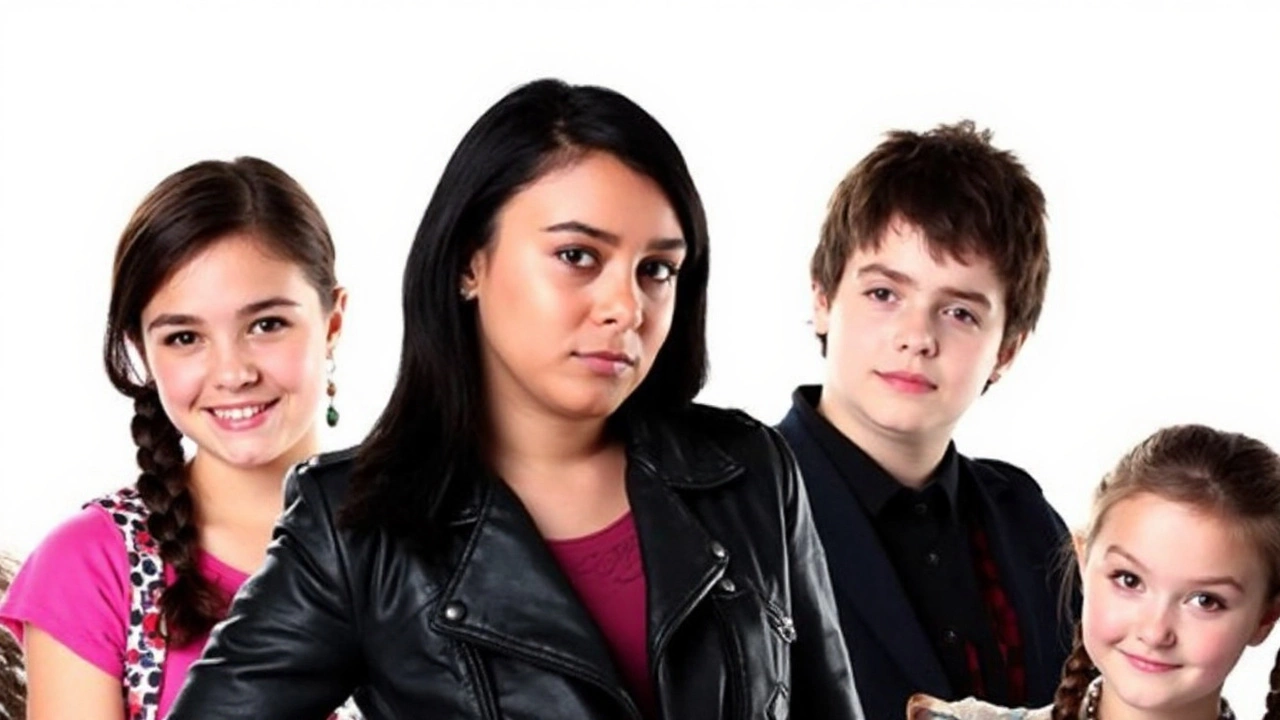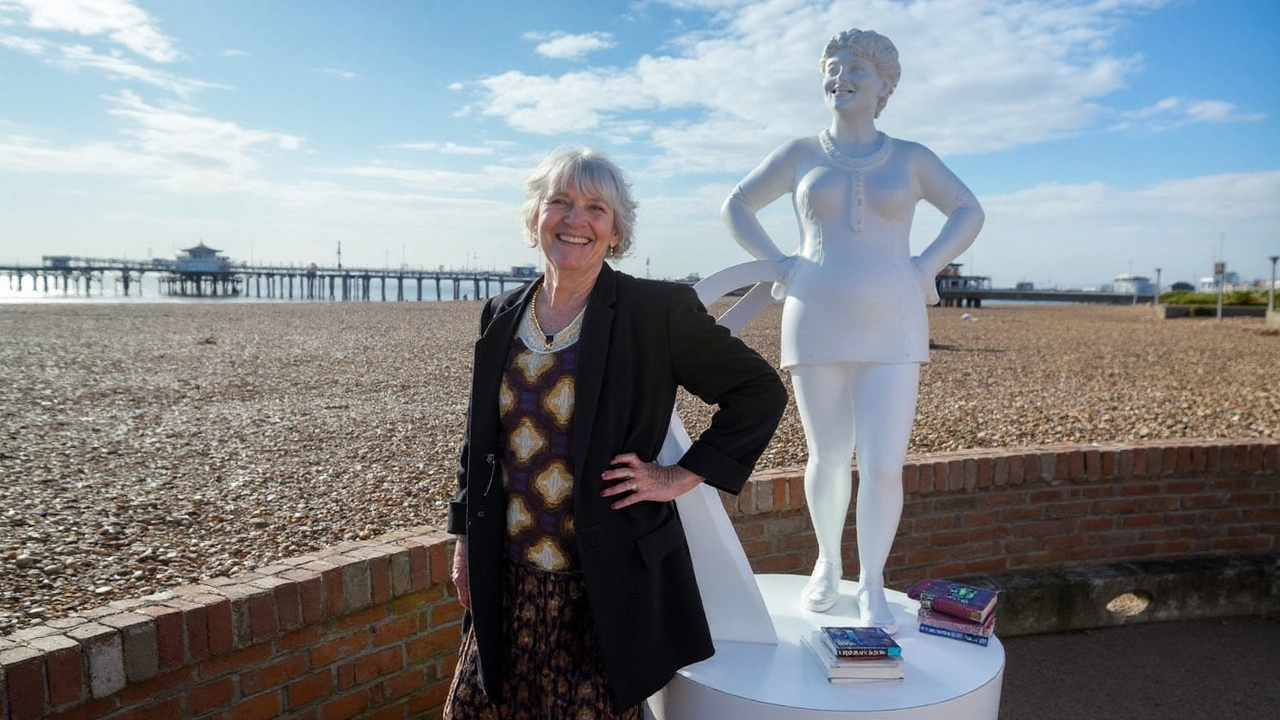Jacqueline Wilson grows up her most-loved characters in Picture Imperfect
Jacqueline Wilson is back with a curveball her longtime readers have been waiting for: an adult sequel to one of her most powerful children’s novels. Picture Imperfect, published in hardback by Penguin Books UK, returns to Dolphin Westward from The Illustrated Mum — only now she’s 33, living in a cramped bedsit, and still dragged into the stormy orbit of her mother, Marigold.
The Illustrated Mum made its mark for how it treated messy family life with honesty: a child trying to stay afloat while a glamorous, unpredictable mother spins in and out of control. Picture Imperfect picks up that thread in adult life. Dolphin works in a tattoo shop by day and, too often, finds herself collecting Marigold from police stations by night. The same question that hung over her childhood hasn’t gone away: when do you stop rescuing the person you love, and start rescuing yourself?
Wilson builds the story around Dolphin’s choices, and none of them come easy. The book weighs loyalty against freedom, and comfort against risk. Dolphin isn’t just coasting; she’s stuck, and the novel asks what it takes to move when you’ve been standing still for years.
- There’s the pull of a gentler life with Lee, a gardener, and his daughter, Ava — a version of family that looks safe, steady, and caring.
- There’s the heat and chaos of Joel, a roguish actor who sweeps Dolphin into a romance that’s exciting, but unsteady.
- And there’s a lifeline from her sister, Star — now a doctor in Scotland — offering a room, a reset, and the kind of structure Dolphin never had.
Marigold is still Marigold — beautiful, volatile, and impossible to ignore. Wilson doesn’t flatten her into a villain or a victim. She shows how love and exhaustion can live in the same room, how care can become a trap, and how old roles are hard to break even when you know they’re breaking you. The book keeps the emotional directness that made Wilson a staple on British bookshelves, but the questions are adult: housing precarity, burnout, boundaries, and what it means to stop being the “good” daughter.
For readers who grew up with Wilson — the Tracy Beaker crowd who are now juggling rent, relationships, and family obligations — Picture Imperfect lands as a reunion and a reckoning. The tone is familiar: plainspoken, sharp, and kind. The setting is different: late-night callouts, gig-economy vibes, and the weight of decisions that don’t reset in the morning.
Early reaction has been warm and loud. Writer Dawn O’Porter praises the way Wilson “taps into the joys and pains of women everywhere.” Novelist Alice Winn calls it a relief: “Thank God for Jacqueline Wilson!” The Daily Mail’s take is that the novel “offers grown-ups what Wilson has long offered teenagers: comfort, sanity and delight in the ordinary.” Those lines match what the book is doing — not razzle-dazzle, but texture and truth.
Publishing-wise, Penguin Books UK is positioning this as a major cross-over moment. A Waterstones Exclusive Edition hardback is on shelves, and event tickets are rolling out for launch appearances. It’s a smart play: the audience that underlined Wilson’s paperbacks in school is now in their thirties and forties, and they’re hungry for stories that talk frankly about care, class, and the long shadow of childhood.
Wilson’s move into adult fiction doesn’t feel like a hard left turn. For years, her children’s books have dealt with heavy topics — divorce, foster care, money stress, mental health — without sugarcoating or preaching. Picture Imperfect takes the same approach, but sets it in the push-and-pull of adult life, where you can walk away but often don’t. The stakes aren’t exams or playground politics anymore; they’re jobs, rent, and whether you finally put yourself first.
The structure mirrors Dolphin’s mindset. There are moments of spark — romance, career chances, a flash of everything-could-change — that collide with setbacks and second thoughts. You feel the small wins: a meal that feels like family, a day that doesn’t end in chaos, a conversation where someone listens. You also feel how tiring it is to keep choosing your life when the past keeps tugging at your sleeve.
Fans of The Illustrated Mum will notice how Wilson updates the dynamic between the sisters. Star’s offer to move to Scotland isn’t just a plot device; it’s a test of family history. Can you accept help from the person who escaped before you did? Can you step into her ordered world without losing your own? The book doesn’t settle for neat answers, which is part of why it rings true.
The setting — a tiny bedsit, the routine of a tattoo studio, long nights waiting for calls — gives the story a lived-in feel. Wilson lets work matter. Dolphin isn’t romanticized as a free spirit; she’s paying bills, keeping the shop running, and trying not to be consumed by problems that aren’t hers to fix. That grounded detail makes the big emotional swings feel earned.
Picture Imperfect also speaks to a wider trend: the children’s authors who shaped a generation are now writing for that generation as adults. It’s not nostalgia bait. It’s continuity. The questions we had at 12 don’t vanish at 32 — they evolve. Wilson gets that. She respects her readers enough to show how messy growth really is.

What readers can expect — and why it matters now
Expect recognizably Wilson prose: crisp dialogue, scenes that end on a breath, and characters who don’t behave because a plot needs them to. Expect a story about care that doesn’t scold you for caring, but also nudges you to draw a line. Expect romance with both spark and consequences. And expect the kind of ending Wilson favors — honest, open, and hopeful without pretending everything is fixed.
The marketing push, including a Waterstones Exclusive Edition hardback and live events, shows confidence that this isn’t a niche spin-off. It’s a bid for a wide adult audience, including readers who never picked up The Illustrated Mum. The hook is simple: a woman in her thirties trying to build a life that belongs to her, while the past keeps knocking at the door.
If you grew up on Wilson, there’s a jolt in seeing these characters grown up. If you didn’t, the book still stands alone. Picture Imperfect is about the moment you realize that staying loyal to your old story is costing you your new one. Wilson’s answer isn’t cold or clinical. It’s tender, tough, and very human — which is exactly why this sequel lands now, and lands hard.





